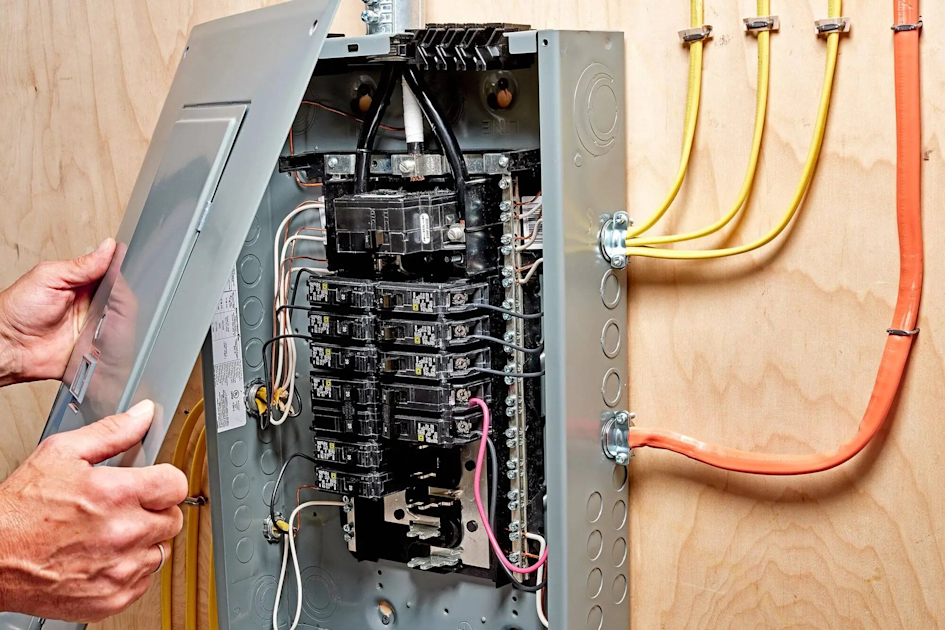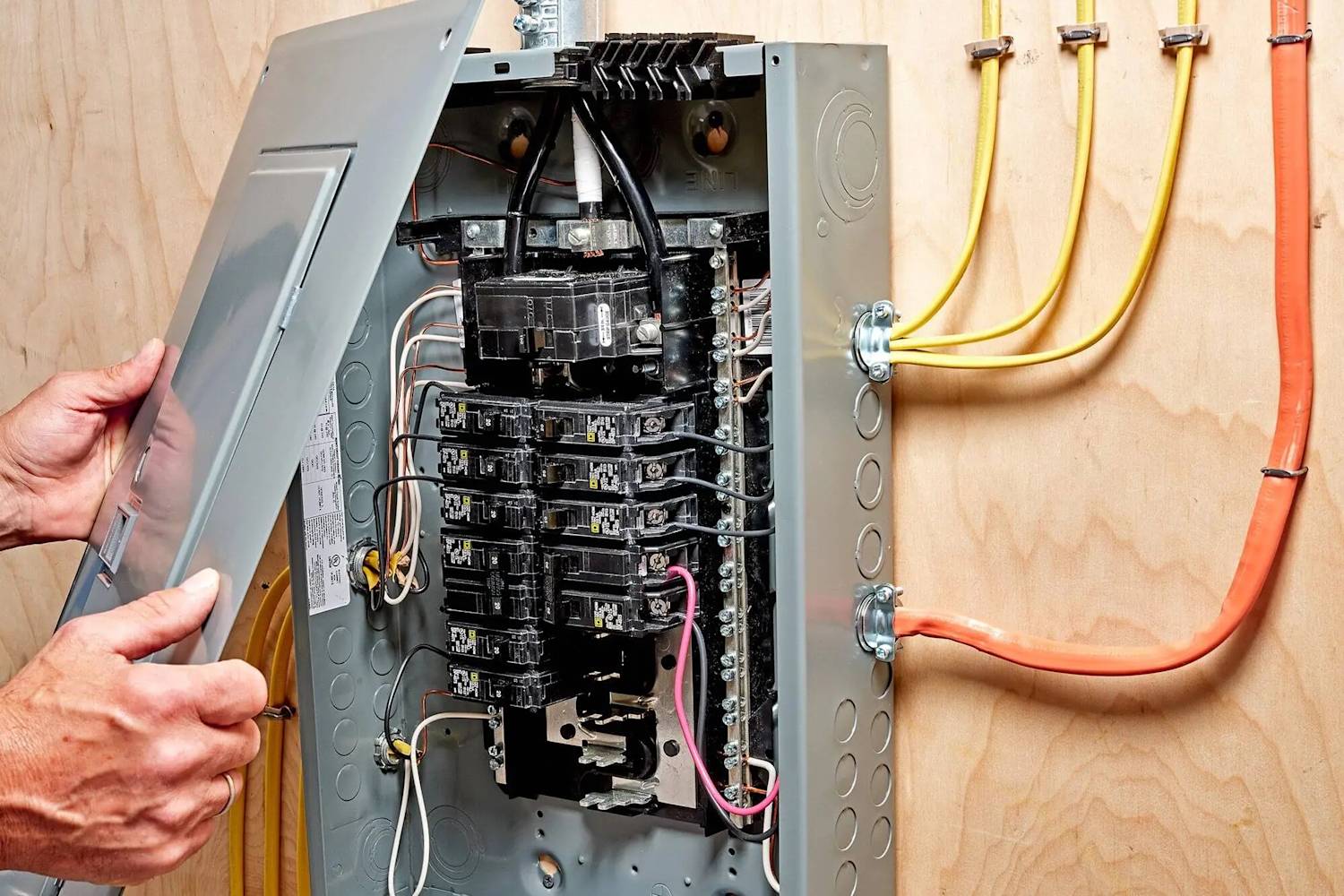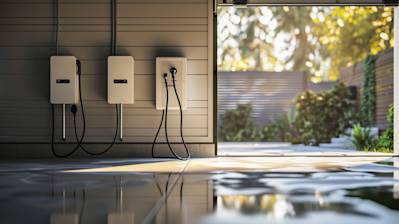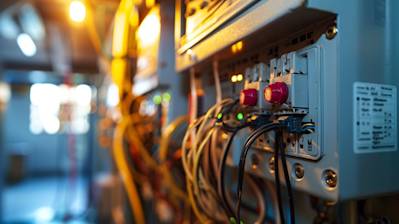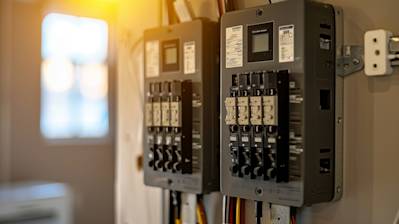In our fast-paced world, the role of electricity in powering our homes and businesses cannot be overemphasized. One crucial component of any electrical system is the circuit breaker. It's so significant that a malfunctioning circuit breaker could lead to serious electrical problems.
However, like every piece of technology, circuit breakers also have a lifespan. At some point, they will need to be replaced. In this blog post, we will delve deep into the topic of circuit breaker replacement, providing you with all the vital information you need to know.
Understanding Circuit Breakers
Circuit breakers are key components in any electrical system. They serve as a safety mechanism designed to prevent electrical overloads and short circuits—both of which can cause fires. When a power surge occurs, the circuit breaker interrupts the flow of electricity by 'tripping' or turning itself off.
Signs Your Circuit Breaker Needs Replacement
Before discussing how to replace a circuit breaker, it's essential to know when it's time to do so. Here are some signs that might indicate your circuit breaker needs replacement:
- Frequent Tripping: If your breaker trips regularly, it may be aging or faulty.
- Failed Reset: When a breaker trips, it should be possible to reset it. If it fails to reset, it might need replacing.
- Burning Smell: A burnt smell in your electrical panel could signify a breaker that's gone bad.
- Physical Damage: Physical signs like charring or scorching around a circuit breaker panel are clear indications of a damaged breaker.
Points to Consider Before Circuit Breaker Replacement
While it's crucial to replace a faulty circuit breaker promptly, there are some points to consider before taking action:
- The Type of Circuit Breaker Required: There are various types of circuit breakers (like Standard, GFCI, and AFCI), and it's important to choose the right one for your electrical panel.
- Professional Help: Replacing a circuit breaker should be done by an experienced electrician. If not handled correctly, it could lead to electric shocks, short circuits, or even fires.
The Process of Circuit Breaker Replacement
Replacement of a circuit breaker involves a series of well-defined steps:
- Turn Off the Main Power: This reduces the risk of electric shock while replacing the breaker.
- Remove the Panel Door: After the main power is turned off, the panel door or cover should be carefully removed.
- Uninstall the Faulty Breaker: Carefully remove the old breaker from the panel, ensuring not to harm the surrounding wiring in the process.
- Install the New Breaker: Insert the new breaker, and connect it to the corresponding wires, ensuring that they are tightly secured.
- Test the New Breaker: After reattaching the panel cover, turn on the main power and check if the new breaker operates without any issues.
Remember, these steps are highlighted for informational purposes only. Always hire a professional electrician for circuit breaker replacements.
Maintenance is Mandatory
While replacement might be inevitable, regular maintenance can extend the lifespan of your circuit breakers. It includes regular inspections, keeping the breaker panel clean, ensuring adequate connections, and immediate issues addressing.
Frequently Asked Questions about Circuit Breaker Replacement
Can I perform a circuit breaker replacement myself?
While some home maintenance tasks are suitable for DIY, replacing a circuit breaker is not one of them unless you have a strong understanding of electrical circuits. This task presents a significant risk of electric shock and even a possible house fire if not performed correctly. Rather, it's prudent to hire a qualified professional to complete a circuit breaker replacement to ensure it is installed safely and accurately.
How long does a circuit breaker last before needing replacement?
The lifespan of a circuit breaker can vary greatly depending on usage, but a good rule of thumb is they last around 30 to 40 years under typical conditions. However, if you use multiple high-amperage electronics or have frequent power surges, this could significantly reduce its lifespan, leading to the requirement of a circuit breaker replacement sooner.
How much does a circuit breaker replacement cost?
The cost of replacing a circuit breaker can vary based on your location, the complexity of the job, and the specific type of breaker you need. On average, circuit breaker replacement costs can range from $150 to $250, excluding any call-out or labor charges. Always get a quote before proceeding with the job to avoid unexpected costs.
Can a circuit breaker replacement save me money?
Yes, undergoing a circuit breaker replacement can save you money in the long term. An outdated or malfunctioning circuit breaker can lead to increased energy consumption, regular power surges, or even damage to your appliances and home electronics. By replacing a faulty breaker, you can lower your energy costs and reduce the risk of expensive repair or replacement.
What happens if I don't get a circuit breaker replacement when needed?
Ignoring the need for a circuit breaker replacement can lead to some serious consequences. A faulty circuit breaker may not provide the necessary protection against electrical overloads and short circuits. This could result in electric shock, damage to your appliances and electronics, or even a house fire in the worst case.
What kind of circuit breaker replacement do I need?
The type of replacement breaker you need depends on the brand and type of your existing panel. Some common types are standard circuit breakers, GFCI breakers, and AFCI breakers. It's critical to ensure that you replace your old breaker with the correct type to maintain compatibility and safety.
Will all my power need to be off during a circuit breaker replacement?
Yes, for safety reasons, the power will need to be turned off at the main switch during a circuit breaker replacement. While this can be inconvenient, your safety is paramount to ensure the operation is carried out with minimal risk.
How long does a circuit breaker replacement take?
Under normal circumstances, a trained professional can replace a circuit breaker within an hour or two. However, certain factors may influence this, such as the accessibility of your panel or whether any additional repairs are needed.
Pros of Circuit Breaker Replacement
Enhanced Safety
One of the most significant advantages of replacing a circuit breaker is the improved safety it brings. Old, faulty, or damaged circuit breakers may cause electrical fires, electrocutions, or other electric mishaps. Replacing them helps prevent these risks, providing peace of mind to homeowners.
Improved Home Value
Make the Home More Attractive to Buyers
A home with a newly replaced, reliable circuit breaker generally appears more appealing to potential buyers. It eliminates potential issues down the line, is a sign of good property maintenance, and indicates the home's overall electrical system is updated and functioning correctly.
Increase Resale Value
In addition, an updated circuit breaker can potentially increase a home’s resale value. Buyers would rather not invest in a property that will require significant updates and repairs, especially involving electrical work, which can be costly.
Reduced Energy Costs
More Energy Efficient
Newer circuit breaker models are generally more energy-efficient, which can reduce a home's overall energy consumption.
Lower Electricity Bills
Because of the increased efficiency, homeowners may notice a reduction in their electricity bills after replacing an outdated circuit breaker.
Potential to Upgrade
Ability to Add More Circuits
Replacing your circuit breaker box might provide the opportunity to add more circuits or upgrade your home's electrical capacity. This is particularly beneficial for older houses that may not have been designed to handle modern electrical loads.
Compatibility with Modern Appliances
A new circuit breaker can accommodate high-powered modern appliances and electronics much better without tripping or causing power outages.
Cons of Circuit Breaker Replacement
High Upfront Costs
Cost of the New Circuit Breaker
Circuit breakers themselves aren't necessarily cheap. Depending on the model and capacity you choose, new circuit breakers can be quite expensive.
Installation Costs
On top of the cost of the circuit breaker itself, there are also installation costs to consider. You'll likely need to hire a professional electrician for the job, which adds to the overall expense.
Replacement Can Be Time-Consuming
It Requires Professional Help
Replacing a circuit breaker isn't something most homeowners can do on their own. You'll likely need to schedule an appointment with a professional electrician, which can be inconvenient depending on their availability.
The Process May Disrupt Home Life
The replacement process may disrupt your daily home life for a while. It may take a few hours or an entire day, depending on the complexity of the installation. Electricity will need to be turned off during this time, which can be inconvenient.
There May Be Additional Updates Needed
Wiring May Need to be Upgraded
In some cases, replacing a circuit breaker may lead to the discovery that the home's wiring also needs to be upgraded. This can lead to additional costs and time spent on the project.
Other Electrical Components May Need Replacement
Furthermore, other aging or outdated electrical components may need replacement to ensure the new circuit breaker functions efficiently. This can further increase costs and the timeline for the project.
Potential Risks If Not Done Properly
Risk of Electric Shock or Fire
If a circuit breaker isn't installed correctly, it may lead to dangerous situations like electric shock or fire.
May Void Warranties
Should the replacement not meet the approved standards, it might void existing warranties on your electrical system or appliances. This could mean incurring extra costs for repairs or replacements that could have been covered otherwise.
In conclusion, while circuit breaker replacement comes with a myriad of benefits like improved safety, better performance, and the ability to handle modern electrical demands, it also holds some disadvantages. These include high costs, disruptions to daily life, and the potential for more extensive electrical work being needed. Thorough consideration is warranted to decide if a circuit breaker replacement is the right action for you.
Summary
So, that's pretty much what circuit breaker replacement boils down to. It is an unavoidable part of maintaining a safe and efficient electrical system. You will probably have to replace one at some point, whether because of natural wear and tear over time or due to a sudden electrical issue. Remember, working with electrics can be dangerous if you don't know what you're doing. When in doubt, it's always safer to call in a professional technician.
Now, let's wrap up this chat about circuit breaker replacement. Make sure to keep an eye on your circuit breakers and watch out for those telltale signs of trouble. No one wants to experience a blackout in the middle of the night or an unexpected electrical fire. Regular check-ups and timely replacements can save you from potential disasters. So yeah, when it comes to circuit breaker replacement, better safe than sorry.
Lastly, moving forward you should handle the process of circuit breaker replacement with a solid understanding of why it's imperative. This is essential not just for the functionality of your electrical devices but also for the safety of your home. And while DIY can save you a few bucks, ensure you're not putting yourself at risk. It's always a smart move to get help from a seasoned pro, if you're not absolutely sure about what you're doing.
About Sagan Electric
At Sagan Electric of Sacramento, CA, we're all about providing excellent electrical services while keeping things cool and casual. We're nestled in the city of dreams, Sacramento, where we've been making homes and offices safe and bright since we first flipped the switch. Our electricians are not just experienced professionals, they're also friendly folks who are just a call away for all your electrical needs. Our team has been powering the Sacramento area for a number of years, and we're really good at what we do - from minor fixes to major installations.
Tags: electrical safety, home improvement, DIY,

